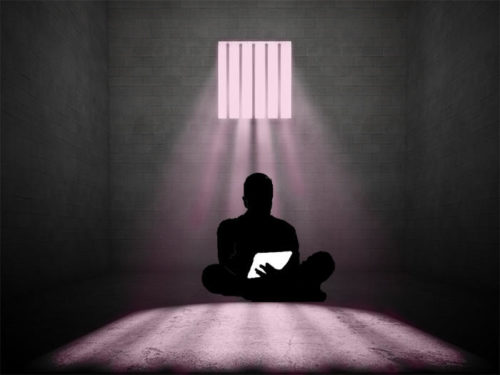
The authority to deprive an individual of their liberty is firmly grounded in the Philippine legal system. Courts, upon conviction, possess the power to judiciously impose sentences, which may include imprisonment, taking into account the nature and gravity of the offense.
Persons deprived of liberty (PDLs), with the exception of limitations arising from physical confinement, are expected to enjoy the same fundamental rights as any other citizen. The Philippine 1987 Constitution, as the supreme law of the land, serves as the bedrock for protecting the fundamental rights of all individuals, including those deprived of liberty. Article III, Section 1, explicitly declares that “No person shall be deprived of life, liberty, or property without due process of law, nor shall any person be denied the equal protection of the laws.”
Right to life, liberty, and property.
The right to life encompasses an individual’s entitlement to their body in its entirety, free from dismemberment. This extends to the use of God-given faculties contributing to the enjoyment of life. Liberty, as defined by the Constitution, includes “the right to exist and the right to be free from arbitrary personal restraint or servitude. It also encompasses the right of the citizen to freely use their faculties in all lawful ways.” Property, on the other hand, is broadly defined as anything falling under the right of ownership and being the subject of a contract, involving the right to secure, use, and dispose of possessions.
However, the liberty of citizens may be restricted when necessary in the interest of public health, public order and safety, or within the proper scope of police power, as is the case with PDLs. These restrictions are in alignment with legal principles and societal interests.
Do PDLs still enjoy freedom of expression?
The freedom of speech and expression is a right guaranteed by no less than the 1987 Constitution, as stated in Section 4: “No law shall be passed abridging the freedom of speech, of expression, or of the press, or the right of the people peaceably to assemble and petition the government for redress of grievances.”
PDLs retain only those fundamental rights that are consistent with their status as prisoners, and freedom of speech and expression is among those retained rights.
Consider the case of Leila de Lima, the first prominent political prisoner under the Duterte regime, who, despite her incarceration, managed to write numerous dispatches from Camp Crame, providing a distinctive perspective on life within prison walls.
Similarly, the renowned Nelson Mandela serves as an exemplary figure. Isolation and confinement didn’t dampen his spirit; instead, they fueled his determination, leading to a remarkable feat during his imprisonment – the authoring of a significant book titled “Long Walk to Freedom.” This literary work became a global symbol advocating justice and equality, resonating as a powerful testament to resistance against oppression.
Censorship of mail matters.
Censorship of mail matters is a practice outlined in the BJMP Comprehensive Operations Manual. According to this manual, mail matters pass through a designated Censor Officer to intercept any contraband, illegal articles, or information that may compromise jail security.
However, this censorship has raised concerns as it effectively curtails the right to freedom of speech and expression. Such practices also appear inconsistent with the BJMP’s ongoing reform efforts aimed at rehabilitating Persons Deprived of Liberty (PDLs).
In the words of Justice Marshall, the policy of reading prisoner mail could have a “chilling effect on free expression,” potentially hindering rehabilitative attempts. He strongly emphasized that prisoners are not merely privileged but constitutionally guaranteed the right to use the mails as a medium of free expression.
Concerns over mail censorship in the BJMP highlight the need to balance security and the right to freedom of speech and expression. These matters, with their constitutional implications, are better addressed through a comprehensive examination by appropriate institutions such as the Supreme Court, through test of constitutionality, or the Congress, by enactment of law that strike a fair balance between security and individual rights.
As it stands, as long as one follows the security protocols of the detention facility, one can write a book in jail as an exercise of one’s right to free speech and expression.


